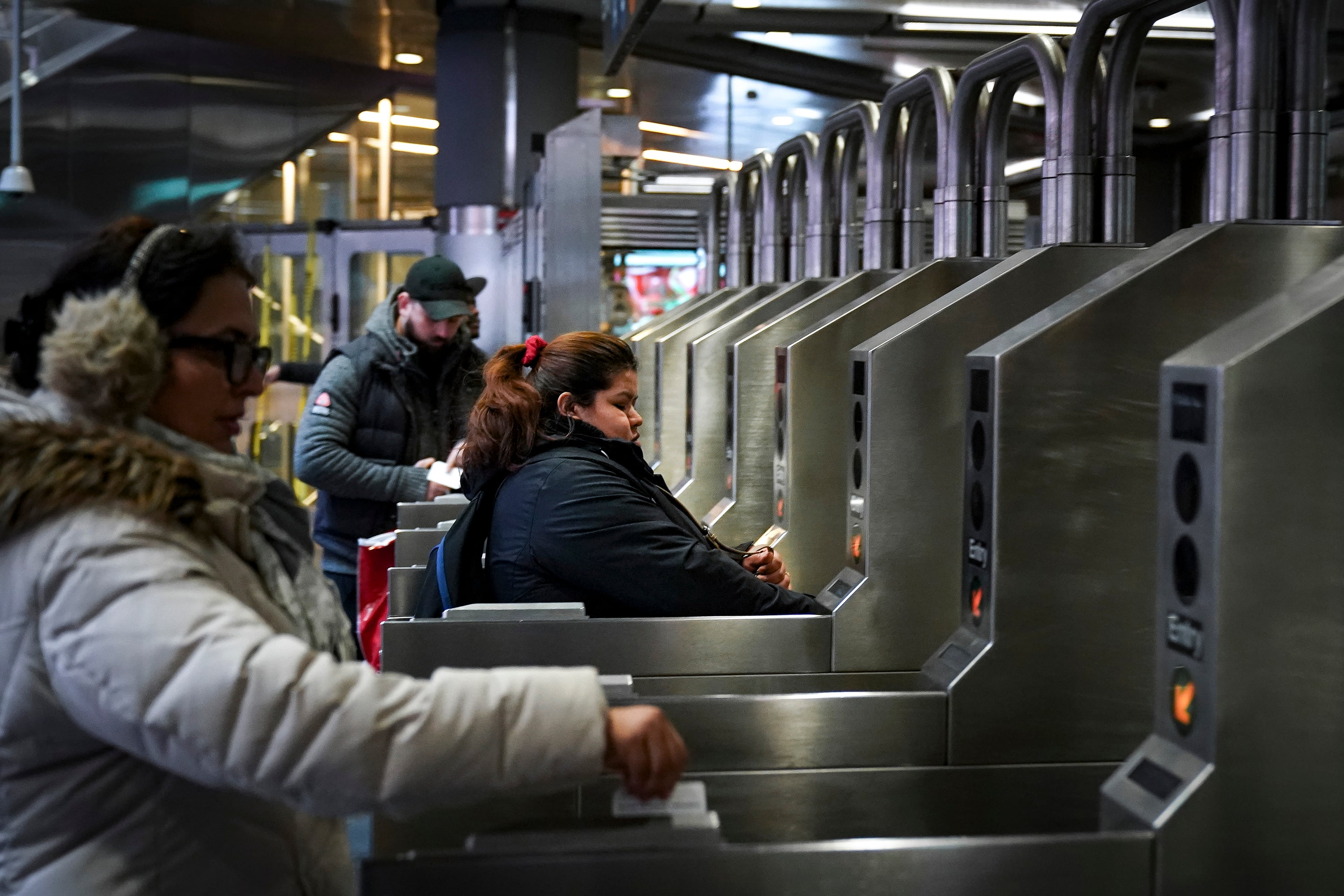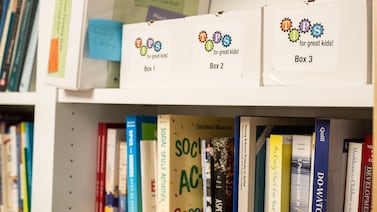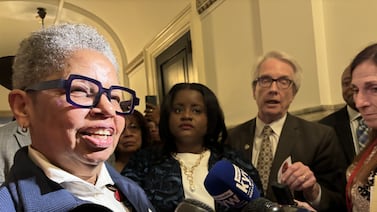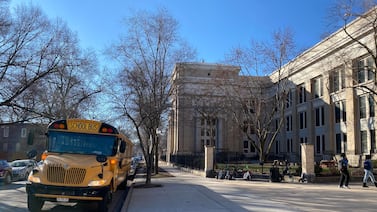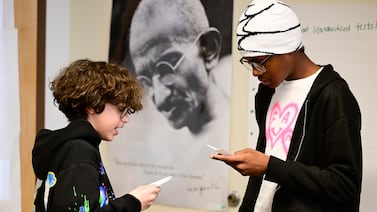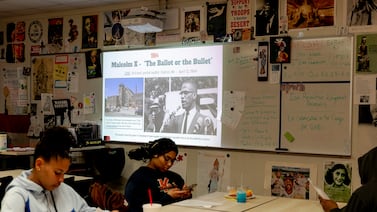Sign up for Chalkbeat New York’s free daily newsletter to keep up with NYC’s public schools.
Widespread shortages and delays in the distribution of free MetroCards to parents of homeless New York City public school students are frustrating families trying to get their kids to school, according to several sources.
Schools are supposed to provide parents of students in temporary housing free 30-day MetroCards each month so they can accompany their children to school on public transit, according to city policy.
But schools are struggling to get an adequate supply of MetroCards from the Education Department’s Office of Pupil Transportation, according to a survey of schools in Manhattan’s District 3 conducted last month by City Council Member Gale Brewer, D-Manhattan.
The problems mount as the city also confronts a record number of homeless young people, driven by the arrival of an estimated 36,000 migrant children over the past two school years. Without the free MetroCards, some families have stopped sending their kids to class altogether, while others have resorted to hopping turnstiles and risking tickets, according to an April 5 letter from Brewer to Mayor Eric Adams sharing the results of the survey.
Fifteen schools in the district, which includes parts of Harlem and the Upper West Side, reported not receiving all of the MetroCards they’d requested. Some orders fell dozens of MetroCards short, and refills arrived months late, according to the survey.
“We have families who are struggling to get their kids to school because their only source of transportation is the MetroCards we provide for them,” said April Diaz, the parent coordinator at P.S. 242 in Harlem.
The school, which recently enrolled around 50 newly arrived families living in shelters in addition to its other families in temporary housing, received a shipment of parent MetroCards in December, but didn’t get a refill until last week, despite weekly follow-up messages to the Office of Pupil Transportation requesting them, according to Diaz.
In the meantime, attendance suffered, Diaz said, and families can’t afford to pay police tickets for hopping turnstiles.
The 100 new MetroCards that arrived last week were quickly snapped up, and attendance has already improved markedly, Diaz said.
It’s not clear exactly how widespread the problem is, and some schools said they’ve received an adequate supply. But the issue isn’t confined to District 3, according to Jennifer Pringle, the director of the Learners in Temporary Housing Project for the nonprofit Advocates for Children.
Education Department spokesperson Jenna Lyle said that as of March 27, all Metrocard orders had been processed and shipped.
“We appreciate the Council Member’s partnership in this work and are reviewing the letter,” she added.
The Education Department has already given out roughly 62,000 MetroCards this school year, a more-than-threefold increase from the 20,000 MetroCards given out during the 2021-22 school year, officials noted. Spending on the MetroCards just through February this year is 55% higher than the total for all of last school year, officials added.
Nearly three-quarters of students living in homeless shelters missed at least 18 days of school last year, according to Advocates for Children.
Students’ need for transportation help surges
The transportation needs have grown even more acute since January, when Adams implemented a 60-day limit on shelter stays for newly arrived families. As a result, many families have had to move to shelters or find alternate housing further away from their children’s schools.
Roughly 1,000 families evicted from their shelters under the 60-day rule have left the city’s school system entirely or switched schools. But the vast majority — roughly 82% — have kept their kids enrolled in the same school, according to data from the City Council.
Many of those families likely now face longer commutes. Students in shelters are entitled to yellow school bus service under city policy, but it can often take weeks to get a route assigned, educators said.
As of last December, even before the 60-day rule took effect, nearly 1,400 homeless students had applied for a school bus but were still waiting for a route — more than double the reported figure from December 2022.
The Education Department received an additional 413 busing requests from students affected by the 60-day notices between January and March, according to the Council.
Orders for new MetroCards from schools during the months of January and February “far exceeded our projected inventory,” an Education Department spokesperson said.
The parent MetroCards are especially critical for families with children too young to take public transit on their own and for parents who don’t yet have the income to afford their own MetroCard, educators and advocates said.
Administration officials promised that families displaced by the 60-day rule would get the transportation help they needed to keep their kids in the same school. But Brewer said the long waits for buses and the delays in free MetroCards undercut that promise.
“I don’t want to be told by the administration” that families evicted from their shelters under the 60-day rule “can live anywhere,” said Brewer. “They can’t.”
One Venezuelan mom forced to move from a Brooklyn shelter within walking distance of her child’s elementary school, P.S. 46, to a Manhattan shelter due to the 60-day limit told Chalkbeat in February that she didn’t want her son to miss any school. But she couldn’t get a free MetroCard right away from the school. So the family decided to sneak through an open emergency gate, and her son’s father received a ticket.
Tickets and arrests for fare evasions have skyrocketed across the city over the past year as officials send more police officers into the subway system.
Schools, advocates want an improved MetroCard process
Schools are supposed to fill out a form through the Education Department’s Office of Pupil Transportation each month to request MetroCards.
But Pringle said the form is buried in the Education Department’s website, and multiple schools told Brewer’s office they didn’t receive any response after filling out the form.
Other schools said they were told there is a shortage of funds for the MetroCards, while Diaz, the P.S. 242 parent coordinator, said her school heard about backlogs, vendor issues, and delivery issues.
Pringle called the situation “ridiculous” and argued the system should be streamlined.
Lyle, the Education Department spokesperson, said “we are committed to providing every available resource to meet our families’ needs and ensure all students can get to school each day, as well as our families for students in temporary housing.”
This story has been updated to include comments from the city Education Department.
Michael Elsen-Rooney is a reporter for Chalkbeat New York, covering NYC public schools. Contact Michael at melsen-rooney@chalkbeat.org.


